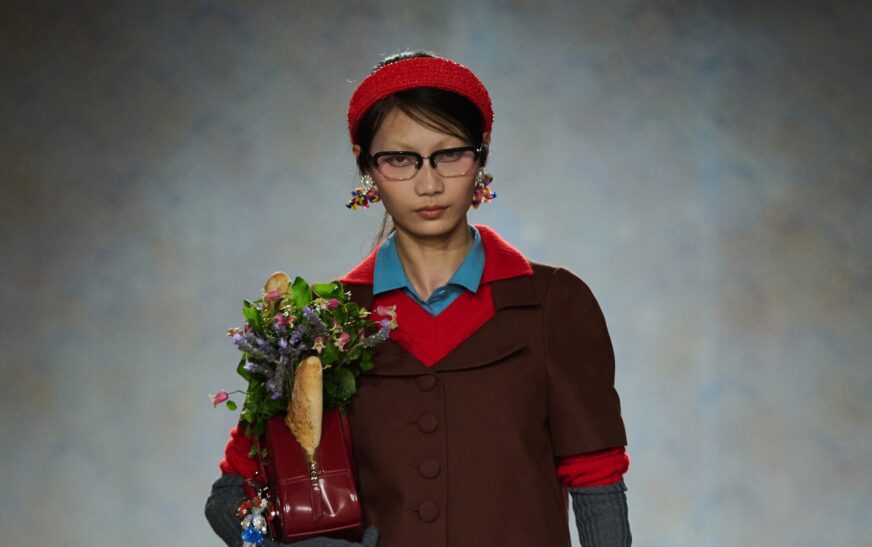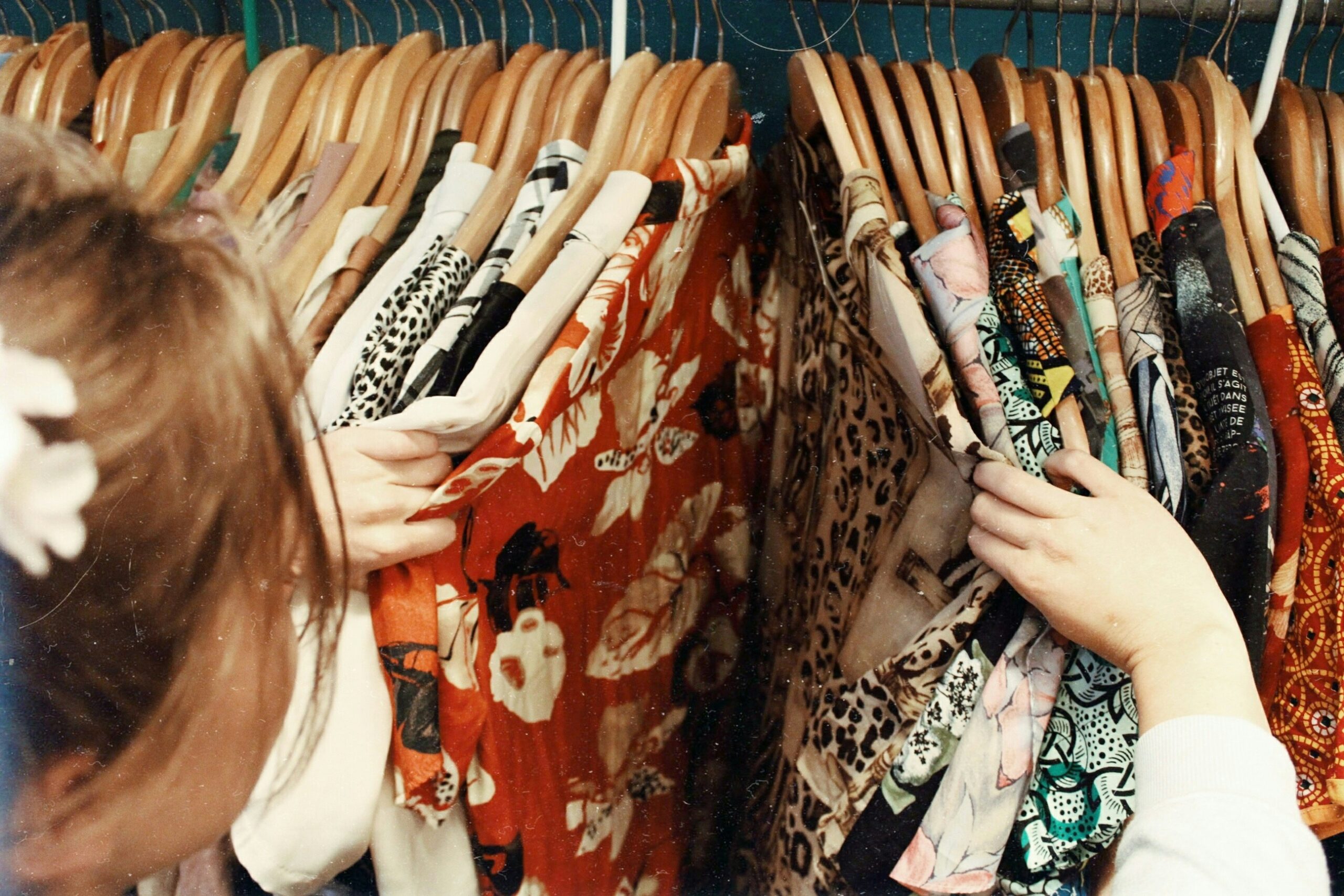As of November last year, South Korean citizens can enter China visa-free. Why is this information relevant in a fashion show review? Because, per the founder of one of Shanghai’s most prominent showrooms and as confirmed by the designers, the Shushu/Tong store in Shanghai is a hot-spot for many Korean tourists: “They go straight from the airport!” the former reported.
This year Shushu and TongTong—Liushu Lei and Yutong Jiang, respectively—are celebrating the 10th anniversary of their label. One of Shanghai’s biggest success stories, the duo keep beating expectations. It’s not just the dwindling foot traffic and low spending in China that they’re defying. They’ve built an internationally renowned label, and helped to change Chinese fashion for-export in the process.
The designers are completists. From the set to the styling to the clothes themselves, there are no details left to chance. Take the way they stuffed their handbags with fresh flowers, baguettes, and newspapers or books: That the paperback of choice was Sally Rooney’s Beautiful World, Where Are You was a genius example of knowing one’s audience. ShuShu and TongTong understand that their prim, pretty, and unabashedly girly clothes are as much of a uniform to some as they are a covetable aesthetic to others.
“She’s just wearing these clothes, going to the grocery store, going back home,” said ShuShu, adding that the intention was to make the lineup feel “very believable.” At times in the past, the rigor of the designers’ vision has left their designs feeling like impenetrable shields. This time around, there was a new friskiness and a wider range of options—sporty Shushu with capri pants and easy knit twin-sets; sexy Shushu with midriff-baring tops and micro shorts.
The designers said backstage that they designed the collection around the idea of two friends who’ve grown together and constructed their identities around each other—they are each other’s reflections, yet experience the world on their own individual terms. “Same but different,” is how a colleague put it after the show. What the theme allowed for was a more expansive exploration of the Shushu/Tong identity. It’s an exercise they should carry further, it served them to great effect.








